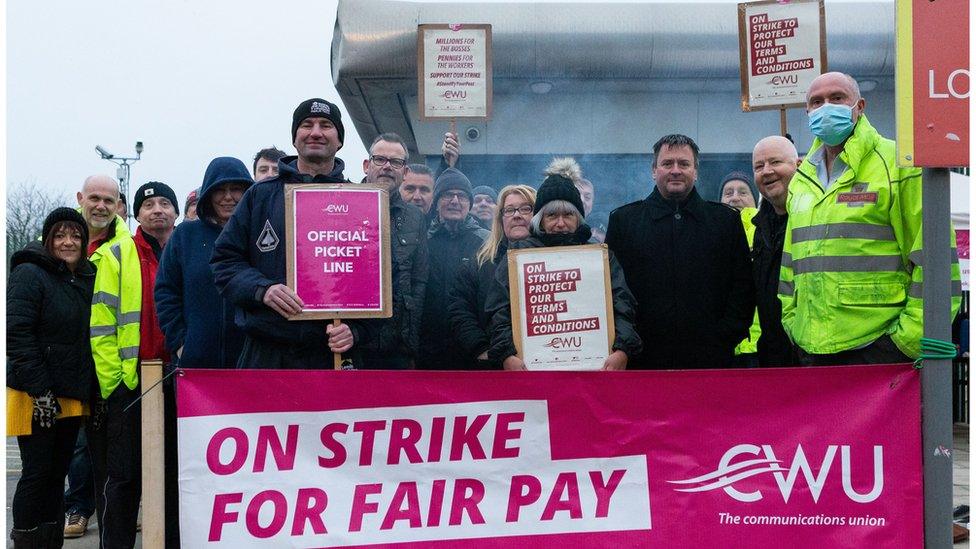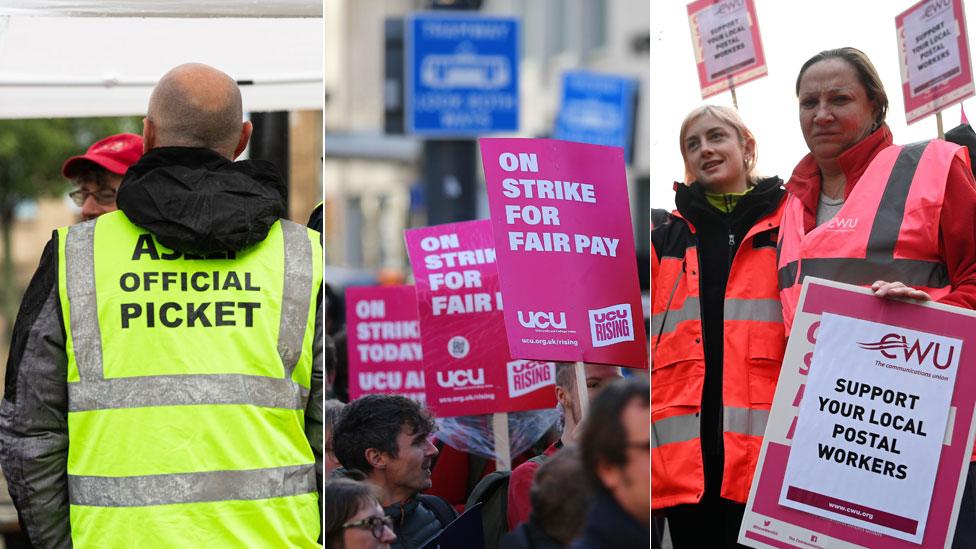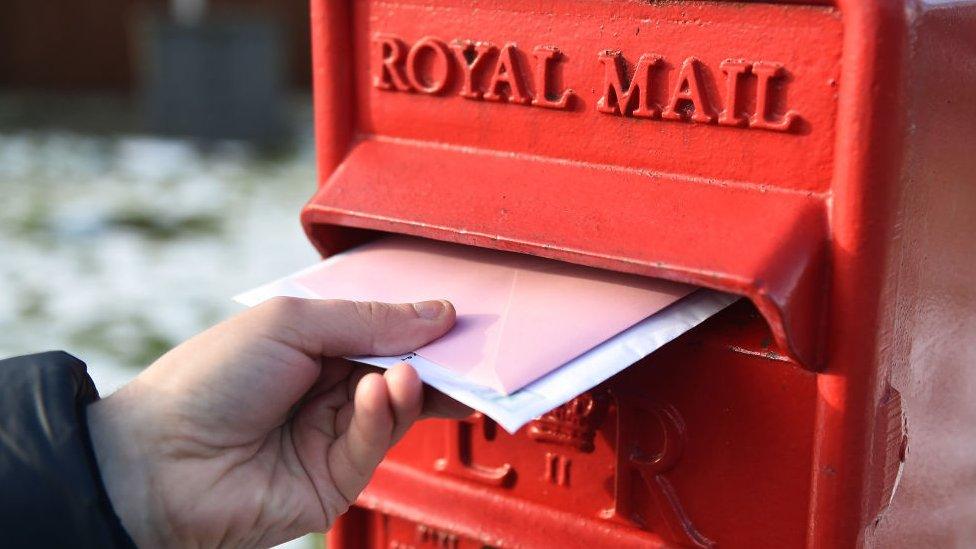Royal Mail workers begin fresh 48-hour strike
- Published
- comments

Postal workers at Royal Mail have begun a fresh 48-hour strike in a row over pay and conditions.
It is the latest in a series of walkouts involving 115,000 workers and will hit deliveries across the UK.
The Communication Workers Union (CWU), which represents the workers, says it wants a pay rise that matches the soaring cost of living.
Royal Mail says it has made a revised pay offer but "no talks are happening".
Postal workers walked out on Thursday and Friday last week, and another wave of strikes is planned in the run-up to Christmas - on 9, 11, 14, 15, 23 and 24 December.
Clara Challoner Walker, who runs the Cosy Cottage Soap Company in Malton, Yorkshire, said the strikes were having a "significant impact" on her business.

Clara Challoner Walker says the strikes are having a big impact on her business
She uses Royal Mail because it is too expensive to send her relatively small soap and skincare orders via courier companies.
She said the strikes could really damage the business during the "critical" Christmas trading period, when it makes most of its profits for the year.
"There will be consequences and we will have to take a hit, we can't up our prices to enable us to send things by courier," Ms Challoner Walker told the BBC.
"We do feel sympathy for the [Royal Mail workers]. But I would question the union bosses as to whether striking at this time of year... is achieving what they are looking to achieve."
On strike days Royal Mail will not be able to deliver first and second class letters, but will deliver as many parcels and Special Delivery letters as possible.
The dispute began this summer after Royal Mail rejected union demands for a pay rise that matched inflation - the rate at which prices rises - which is currently 11.1%.
The union also objects to proposed changes to working conditions, such as ending a number of allowances and the introduction of compulsory Sunday working.
Royal Mail has since offered a pay deal that it says is worth up to 9% over 18 months, calling it its "best and final offer".
But the CWU said that offer represented a "devastating blow" to postal workers' livelihoods and urged the public to "stand with their postie".
Mark Dolan, London divisional representative for the CWU, said: "This is our 11th day of strike action and the action we are taking today is about saving this great British institution.
"We're not prepared to stand by and watch this great public service tuned into another gig economy service where they want to get rid of the current workforce and replace them with workers on 20% less money and less terms and conditions than we currently have."

Sam Smith says the strikes create a "customer service headache"
Sam Smith runs Pot Gang, which sells grow-your-own vegetable and herb kits online. The firm uses Royal Mail to send hundreds of boxes to customers every day, but he said it used more expensive courier companies on strike days to prevent deliveries being delayed.
"The general public generally aren't too forgiving when it comes to [late] deliveries," he told the BBC. "It creates a bit of a customer service headache for us."
Mr Smith said he sympathised with the striking workers but that "ultimately Royal Mail is a business and has to deal with businesses".
"We need to know that things will be arriving reliably and on time for a fair price [this Christmas]," he added.
What does Royal Mail say?
Royal Mail has been struggling as it moves from its traditional business of delivering letters - which is no longer profitable - to the fast-growing world of parcel deliveries.
The company faces fierce competition from courier companies and is losing around a million pounds a day. It said the strikes have added £100m to its losses, and has announced plans to cut up to 10,000 jobs.
As well as improving its offer to workers, Royal Mail says it has promised more generous redundancy terms and a profit-sharing scheme.
Earlier this month, it asked the government to allow it to stop letter deliveries on Saturdays as it reported a sharp loss for the first half of the year.
It wants to move from a six-days-a-week letter delivery to five, from Monday to Friday only. However, parcel services would continue to run all days of the week.
Related topics
- Published26 November 2022

- Published17 November 2022

- Published7 February 2023

- Published1 August 2023
